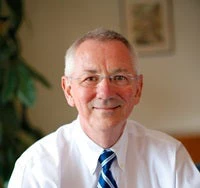
We’re changing planes in Panama on our way to the Rio+20 Earth Summit. As we taxi out to take off the pilot tells us that we’ll need to wait for 15 minutes while we burn off 300 pounds of fuel, since the plane may be too heavy to take off.
My 11 year-old daughter, who is sitting next to me, says “Isn’t this very silly? It’s wasteful and bad for the climate. Why do they do it?”
We’ve brought Charlotte, together with her 10 year old brother, Ben, on this trip so they can see how country leaders struggle with the big issues, and also because they ask the right questions, and help keep us grounded. I explained to her that the fuel on international flights is totally untaxed by international agreement, and that subsidies on fossil fuels amount to over $400 billion each year, including over $70 billion in rich countries. And that governments spend more than 20 times more paying people to consume more fossil fuels than they spend on research to develop renewable energy.
“That’s stupid”, says Ben, who is not as polite as his sister. It’s like telling your kids not to smoke, and then paying them each time you see them smoking.
They’re right, of course. And one of the rare bright spots in Rio was the airtime given to fossil subsidies by civil society and the private sector. The B20 (the business shadow of the G20) Working Group on Green Growth, of which I am a member, urged G20 leaders to publish subsidy levels each year, and set a time-bound schedule for their elimination. Not so easy for political leaders to grasp this nettle, of course, having seen several countries, most recently Nigeria, find their efforts to raise energy prices hit with violent opposition. I discussed with Charlotte how smart politicians, such as in Indonesia and Iran, have found ways to use a share of the revenues saved to provide cash compensation to the poor. “Makes sense”, she said.
Sadly, the official Rio delegates could only agree on a weak statement on subsidies, but the G20 did much better:
“…we reaffirm our commitment to rationalize and phase out inefficient fossil fuel subsides that encourage wasteful consumption over the medium term while providing targeted support for the poorest. We ask Finance Ministers to report back by the next Summit on progress made, and … to explore options for a voluntary peer review process for G20 members by their next meeting.”
This is part of a much bigger issue, of course, relating to price signals and incentives. Oddly, given that economists have been telling us since 1925 how to address environmental externalities, most of our policymakers are still operating with a compass that is not pointing to a true North, but one that is biased towards short term gain and long term loss. Or, to mix metaphors, the pilots or our plane may be trying to head in the right direction, but don’t have a gauge to tell them we’re losing altitude and running out of fuel. That’s why the most important decision made at Rio, apart from the decision to design a new set of Sustainable Development Goals, was the announcement by 60 countries, and nearly 100 major companies to measure, publish and act upon the value of natural capital. All nations agreed to do this at the original Rio Summit in 1992, but failed to deliver. There’s a better chance with this smaller group.
“Does it cost a lot more to do it right?” asks Ben. Well, it might seem that way at first glance. But there’s a growing scientific literature showing that incorporating environmental concerns into costs is smart economics in the near term as well as good for our grandchildren. The World Bank’s recent Green Growth Report is a superb addition to this growing stock of knowledge.
It’s now ten days since our take-off in Panama, the Rio meeting has ended, and we’re in Amazonas. Yesterday, in Manaus, we looked at a sign showing the high water marks of the Amazon for the past 100 years. The year 2012 is, by a significant margin, the highest, and the level of water even today covers the great majority of previous records. Today by boat we visited numerous flooded communities. Everybody told us they had never seen it like this.
“Climate change?” asked Charlotte. No, we can’t attribute this precisely to climate change. But these are exactly the sort of extremes that scientists have been telling us will happen if we live as if tomorrow didn’t matter.
“Why is it so difficult for people to do what’s right?” ask the kids. Aha, it’s partly the lack of the right indicators, the right compass, and the measures of national wellbeing. But at root it’s also plain old-fashioned greed and a lack of concern for the poor. And it’s been going on for at least 3000 years, since the Old Testament prophets regularly railed against precisely the same things that the more radical NGOs in Rio railed against. My favorite is Ezekiel, who hit the nail on the head on a number of key issues, including this one.
“Is it not enough to be given green pasture? Must you also trample it with your feet?
Is it not enough to have clean water? Why must you also muddy it with your feet?”


Join the Conversation